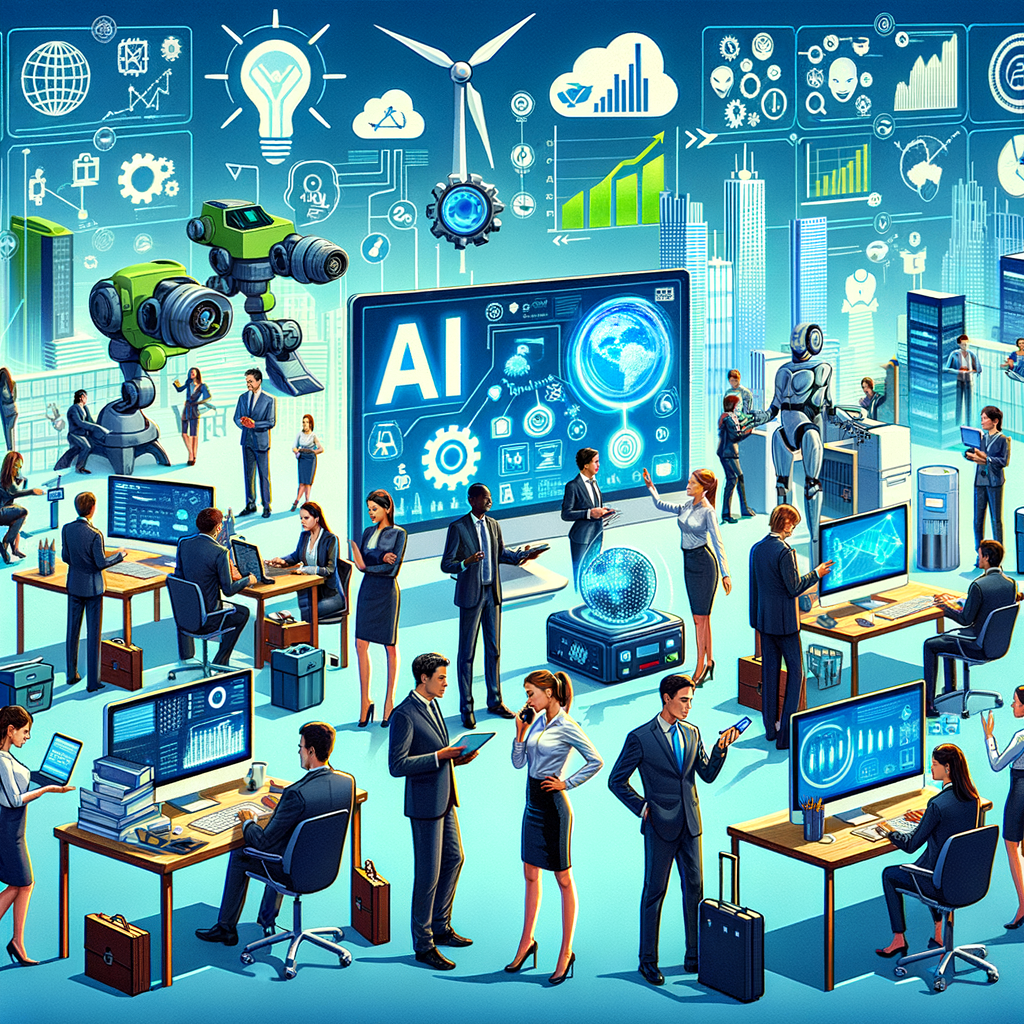I’ve been in marketing for eleven years, and the only constant is change. This is especially true with the rise of generative AI in business. This rise has been particularly interesting. Businesses face two main issues: how can this technology improve my company, and will it take my job?
Let’s address your fears: generative AI is not about to replace you (unless your sole job function is easily automated). More importantly, generative AI offers numerous benefits for businesses. Think of AI as a helpful assistant, streamlining work and making jobs more engaging. AI tools have a rich history, with research dating back to the early 1960s.
How Generative AI in Business Is Changing the Game
The advent of the internet and the first iPhone transformed how we work and live. Generative AI holds similar potential, automating routine tasks. This frees us to focus on creative, higher-level work like strategy.
Streamlining Day-to-Day Operations
Imagine writing personalized emails to thousands of customers. Generative AI handles such repetitive tasks. From creating marketing copy to analyzing data, and summarizing documents to addressing customer complaints, AI frees up employees. This allows them to focus on developing new ideas and building relationships.
Giving Marketing Superpowers
Generative AI has exciting implications for content creation. You no longer need many writers for varied, personalized content. AI tools like Copy.ai and Synthesia generate everything from ad copy to product descriptions. They also help businesses improve sales and marketing through personalized videos.
Faster, Smarter Decision Making
Product development benefits from AI, making product launches quicker. AI rapidly creates designs. It also simulates market responses for data-driven decisions. AI-driven large language models, such as ChatGPT, offer insightful data analysis to improve decision-making.
The Rise of the AI-Powered Business: Practical Applications Across Industries
While concerns about job displacement are valid, generative AI can boost efficiency across various sectors. Current generative AI applications support, not replace, employees.
From Chatbots to Healthcare: Revolutionizing Customer and Patient Experiences
Many customer service operations use AI chatbots, with about 70% reporting greater customer satisfaction. Businesses now create efficient and personalized interactions through AI. Some, like Bolt, reported significant cost savings using this technology. AI platforms in healthcare, such as NVIDIA’s Clara, promise to revolutionize patient care. They offer faster diagnoses and personalized treatments, leading to better health outcomes. Generative AI systems contribute to advances in healthcare with improved diagnostic capabilities.
Transforming Industries Through Data and Design
Across various business functions, about 35% of companies used generative AI by 2022. By late 2023, over 90% of insurance firms either used or planned to integrate generative AI. Generative AI transforms industries by automating processes, managing risks, and building synthetic data models. Researchers are exploring new possibilities through generative models. They utilize AI-powered tools to discover novel nanostructures, creating new opportunities in materials science. AI accelerates scientific discovery with innovative applications in diverse fields like the life sciences. The development process in these fields can be revolutionized. Machine learning algorithms underpin many of these advancements. Artificial intelligence empowers these applications through predictive modeling and analysis of complex datasets. Business leaders are exploring the full potential of generative ai in business decisions and decision making.
Navigating the Challenges of Generative AI in Business
While generative AI’s benefits are clear, ethical considerations and real-world problems exist. Businesses must address these challenges strategically. This involves making sound decisions to leverage AI effectively.
Addressing the Data Privacy Imperative
Generative AI thrives on data. This raises data privacy concerns. Companies must handle sensitive information carefully. Robust systems and strict security measures are essential. These demonstrate responsible data handling. It also builds trust in a changing digital landscape.
Navigating the Ethical Tightrope
Generative AI’s power has a wide range of implications, both positive and negative. Biased source data can lead to prejudiced results. Data bias can create inaccuracies or discriminatory outcomes during AI implementation. Understanding the impact of generative AI is crucial for decision makers in any specific business context.
FAQs about Generative AI in Business
How is generative AI used in businesses?
Generative AI automates tasks, personalizes user experiences, creates content (from marketing materials to 3D models), accelerates research and development, and improves business decision-making. AI models, trained on extensive datasets, generate valuable business insights and answer questions quickly. It also offers AI personalization and engages customers effectively.
How could generative AI change your business?
Generative AI could reduce operational costs, streamline processes, and accelerate product development. With employees having more time for strategy, creativity, and business relations, companies can boost efficiency and revenue. This enables functions of generative AI in the global economy to enhance productivity. Businesses must address ethical concerns about using artificial intelligence and have clear privacy policies.
What are examples of generative AI?
Examples include tools like ChatGPT for text generation and analysis, DALL-E 2 for creating images from text, and platforms like Microsoft Security Copilot. Tools like MOSTLY AI and GenRocket generate and analyze data for building AI models. The latter can analyze unstructured data, providing new avenues for analysis. A deeper exploration reveals solutions using a broader set of machine learning techniques.
How can AI be used in business?
Businesses can integrate AI into various processes, such as marketing, sales, customer relationship management (CRM), product development, and internal operations like talent acquisition. Generative AI technologies assist with various tasks, including talent acquisition. Businesses can use the latest generative AI models for many AI applications.
AI-Powered Business Transforming Industries
Generative AI in business presents an opportunity to optimize and expand, not to replace human workers. While ethical implications and potential biases exist, generative AI offers substantial value. By automating tasks and enhancing worker output, it boosts productivity. Businesses across all industry sectors must learn how to understand generative AI. Knowledge workers can leverage generative ai tools to significantly boost productivity and efficiency. With careful data management, leadership can mitigate bias, enhance creativity, and drive unprecedented growth across diverse industries. As companies across industries embark on this transformation, they need to keep customer engagement a priority. They should embrace ai’s potential in areas like software development to streamline internal processes. This shift requires leveraging the expertise of data scientists and senior partners in AI. Leaders must understand the wider impacts and potential negative implications.






